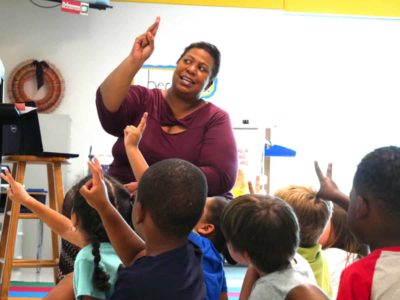
North Carolina is home to over 40,000 people who relocated to the United States as refugees. A refugee is by definition “someone who has been forced to flee his or her country because of persecution, war or violence…. [and] has a well-founded fear of persecution for reasons of race, religion, nationality, political opinion or membership in a particular social group.” The Triangle is a large hub of refugee relocation. As of 2017, refugees and immigrants make up more than 10% of the population of urban counties in North Carolina. Refugees and immigrants comprise 13.9% of Durham’s population and 13.3% of Wake County’s population. When international crises hit, we feel the impacts in North Carolina and feel them acutely in the Raleigh/Durham area. We see the impacts on our students.
The Taliban collapsing the government and usurping control in Afghanistan directly impacts North Carolina teachers in their classrooms. We have students who are Afghan refugees who are struggling right now. And we have young Afghans en route who will soon be sitting in our desks. As teachers, we must seek to listen to the needs of our students, help them navigate the road ahead, and advocate with and for them.
I reached out to several former students who are Afghan refugees and current college students in North Carolina. I asked if they would like to discuss with me what they need their teachers to know, what they wish their teachers would do, and how their teachers could best support them. They collectively decided that we should meet virtually as a group to come to a consensus. Those who could not attend the meeting sent me their thoughts through email and text message. This is their consensus:
- Teachers should educate themselves about Afghan history and the current situation in Afghanistan.
- Teachers should talk about this major world event with their class, just like they would any other major news event. Don’t ignore it.
- Teachers should check on the well-being of their Afghan students by inquiring, “How are you and your family doing?” Don’t pry into specifics, but show genuine concern and empathy.
- Teachers should give a message of hope and encouragement about the future of Afghanistan.
- Teachers should let their students know that they can come talk to them if they are struggling emotionally or academically. School counselors and social workers could consider creating support groups for students experiencing a sense of loss.
- Teachers should help their Afghan students to find healthy ways to spend their time. Encourage them to participate in extracurricular activities at school (sports, theatre, debate, interest clubs, etc.) and help them get plugged in.
- Teachers could and should be advocates and activists. Teachers could petition for women’s rights in Afghanistan or email their legislators and ask them to encourage expediency in the Special Immigrant Visa program.
- Teachers could consider giving money to the International Rescue Committee to provide emergency life-saving aid to the Afghan people.
The young Afghan men and women who met with me and wrote to me overwhelmingly expressed a feeling of isolation and longing to have others acknowledge their suffering. They hurt for their country and worry for their families and friends still in Afghanistan. As of right now, calls are not going through and many questions and concerns remain. These students find themselves struggling with depression and anxiety — incessantly checking their social media feeds for information from inside Afghanistan.
Finding the focus needed to complete organic chemistry homework and finish mechanical engineering assignments is difficult, but one young Afghan student found solace in her father’s words of wisdom and encouragement. He told her, “You have to study for a better future to represent the girls in Afghanistan who don’t have the opportunity for a better future right now.”
I hope that as educators we will each take account of the students before us and seek to know them better throughout this new school year. As school doors open and students arrive, may we be attentive to their needs. Some of them will be sitting in our classrooms with heavy hearts and overburdened minds. It is my sincere hope that our instructional practices will lean into and not away from them.
Recommended reading



